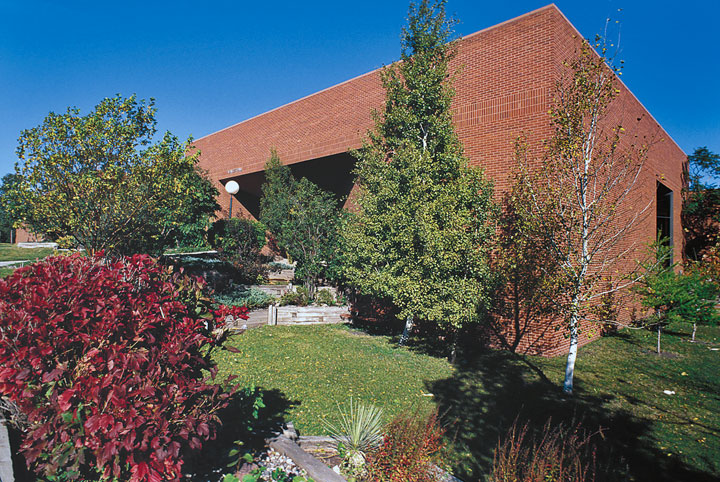Microbiology is a fundamental biological science concerned with bacteria, viruses and other microbes. Some of the most important scientific discoveries have been made by microbiologists. Since 1910, approximately one-third of the Nobel Prizes in medicine and physiology have been awarded to microbiologists. The discipline covers a wide spectrum of specialized interest areas that show how microbes affect human and animal health, agriculture, our environment, food technology and safety, and the biotechnology industry. Microbiology prepares students for a wide range of important career opportunities.
In recent years, the field of microbiology has had a major impact upon virtually all other scientific disciplines. For this reason, students who choose to major in microbiology often minor in biotechnology, chemistry or food safety. Students who choose to major in other fields may find it advantageous to minor in microbiology.
High School Preparation
Students will find courses in science and mathematics, such as algebra, biology, physics, and chemistry, to be very helpful in preparing for a major in microbiology.
Transfer student PREPARATION
Transfer students are strongly advised to take transferable intro biology and chemistry courses in preparation for upper-level science courses at NDSU.
The Curriculum
During the first year, students in microbiology take basic college courses in English, chemistry, biology, and mathematics. The curriculum over the next three years includes advanced courses in microbiology and the life sciences. These courses include microbial physiology, microbial genetics, virology, immunology, and microbial ecology. Students majoring in microbiology can enhance their understanding of applied microbiology and infectious disease by taking courses such as pathogenic microbiology, clinical parasitology, food microbiology, and microbial genomics. Students may choose to minor in programs such as biotechnology, public health, and food safety.
Pathways to success
The department of Microbiological Sciences offers several “Pathways to Success”. Depending on your career goals, you may find one of these pathways will enhance your education to meet that goal. We currently have Pathways to Success in: General Microbiology, Pre-Health Careers, Pre-Veterinary careers, Biotechnology (Double Major), and Accelerated Master's (Public Health or Microbiology).
The Faculty and Facilities
The teaching faculty offers expertise and experience in nearly all areas of microbiology. Additionally, faculty are active researchers and devoted research mentors. Our undergraduates frequently have opportunities to perform cutting edge research in nationally-funded laboratories.
The Department of Microbiological Sciences, located in Van Es Hall, has well-equipped teaching and research laboratories. Several courses are taught in the dedicated STEM education building, A. Glenn Hill Center.
Qualified upper-class students majoring in microbiology may pursue individualized study and research under the supervision of one of the faculty members.
Post Graduate Opportunities
Pre-Professional. The microbiology major is excellent preparation for professional school including medical, veterinary, dental, optometry, and physician assistant programs.
Graduate School. The microbiology major emphasizes experiential learning in coursework and research laboratories that provide the foundation to be successful in graduate school. We even offer an accelerated master's program to help students optimize their timeline to completing their graduate degree while finishing their bachelor's degree.
Career Opportunities
Graduates may seek employment in the health sciences, biomedical industries, biotechnology, agricultural biosystems, food industries, pharmaceutical industries and government agencies. Our graduates work in departments of public health, hospital laboratories, quality control laboratories to ensure a safe food supply, academic, government, or private research laboratories, biotechnology production laboratories, and even breweries. Many microbiologists are teachers and professors and many of our graduates go to graduate school or professional school to continue their career development. Microbiologists work in government agencies such as state public health units, the National Institutes of Health (NIH), Centers of Disease Control (CDC), United States Department of Agriculture (USDA), and Environmental Protection Agency (EPA).
Sample Program Guide
IMPORTANT DISCLAIMER: A Sample Program Guide provides an unofficial guide of program requirements and should be used by prospective students who are considering attending NDSU in the future. It is NOT an official curriculum and should NOT be used by current NDSU students for official degree planning purposes. Note that the official curriculum used by current NDSU students can vary from the Sample Program Guide due to a variety of factors such as, but not limited to, start year, education goals, transfer credit, and course availability.
To ensure proper program completion, enrolled students should utilize Degree Map and Schedule Planner in Campus Connection and consult regularly with their academic advisor to ensure requirements are being met.

